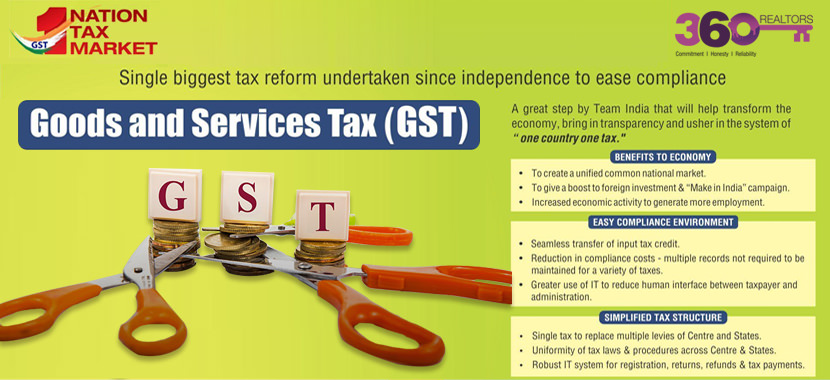The Government is finally rushing to meet the July 1 deadline of implementing the GST bill. The Goods & Services Tax or GST is expected to bring good news to crores of people in India. The bill which had been under consideration for a while now, will finally kick off on July 1. The tax will bring a more transparent structure for consumers as it will lead to uniform prices across the country. The one-nation one-tax reform would replace a number of central and state taxes levied currently in the country.
The GST tax rate has been decided by the GST council, which has finalised tax rates of over a 1000 products and 500 services, to ensure that the prices of everyday goods and services do not go up for a consumer, when the tax is finally implemented on July 1.
The GST council has levied the taxes in such a manner that the common man is not impacted. GST would bring down your monthly Home budget considerably, as daily food items like rice, dal, and milk are slated to become cheaper. Essential commodities have been placed under the lowest tax bracket of 5% under the new tax slabs of GST.
Although there will be no change in the prices of household goods, due to the GST bill, however, goods like packaged products will cost slightly higher. Essential food items like vegetable oil, tea, coffee and cereals, may see a slight decline in prices post the GST bill.
Food grains are slated to cost lower from July 1, 2017 as the GST council has exempted commodities of daily use from the tax. Some states levy VAT on food grains, which have been removed under the GST bill, which will lead to a fall in prices. Other goods like juices and ice creams, will also witness a marginal fall in prices.
However, sugar, condiments, ghee, and cold drinks and other packaged goods will see a price rise. Under the GST bill, your Home Budget will go up if you spend a lot on packaged food items. Prices of packaged goods will go up as much as 18 % – 22 % once the tax is levied. Even cereals prices will witness a decline in prices as they have been put in the exempt category compared to the 5 % tax rate levied on them currently.
Toiletries like toothbrushes, shampoos, soaps, detergents, perfumes, body creams, etc. will also see a decline in prices due to the GST impact. There will be a marginal impact in the price of cosmetics of approximately 2 % to 4 %. Toothpaste, hair oil, and soap will attract 18 % GST against 28 % tax currently.
There will be no impact on school or college fees, while books and coaching classes may get a little more expensive. Consumers should also be prepared to pay higher telephone, cable and internet bills as they fall under the 18 % tax range under GST. Consumers will also feel a pinch while shopping for branded clothes. There is no change in the prices for medicines, while consumers will save some money with a fall in price of cooking gas.
The GST council has also decided a tax bracket for 500 services in its meeting last week. 7 % of the items fall under the exempt list while 14 % services have been put in the lowest tax bracket of 5 %. 17% items are in 12 % tax bracket, 43 % in 18 % tax slab and only 19 % of goods fall in the top tax bracket of 28 %. Nearly 81 % of the items will fall under the 18 % or lower tax bracket under GST.
The automobile sector will be impacted, as small cars will see 1 % cess, mid-size cars will face 3 % cess and luxury cars will see 15 % cess, and will become considerably more expensive. High-end motorcycles will also attract 3 % cess. Apart from this, electronic gadgets like AC’s and refrigerators will fall under 28 % tax slab. GST will bring in a more efficient tax system, and would help curbing tax exemption which is currently rampant in the country!






